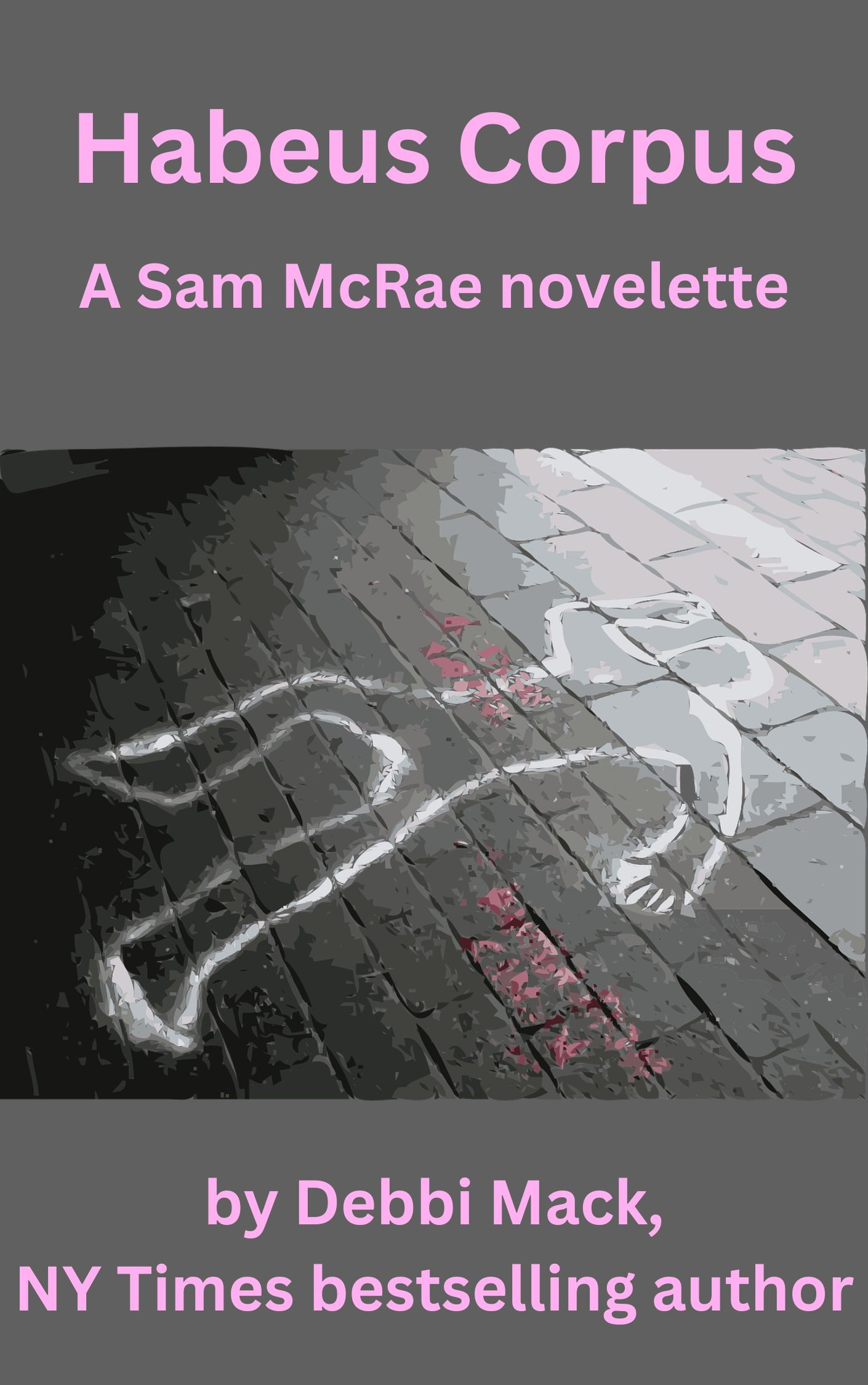What’s new in September?
Here are excerpts from some of the latest book releases:
The Usual Silence by Jenny Milchman.
Available for pre-order until its release on Oct. 1.
THE USUAL SILENCE
Arles Shepherd sat across from her teenage patient, trays on each of their laps.
“It’s taken us a long time to get here,” she said. “What’s your comfort level right now?”
Natalie was transforming her paper napkin into a small heap of snow. “Um, good. Like, maybe an eight?”
The napkin shredding, though. Arles inclined her head, and Natalie huffed out a sigh.
“Okay, more like a four probably. A two. I can’t believe I’m doing this.”
“We’re doing this,” Arles said in a mild tone. “You’re not alone. Remember that.”
After a moment, the girl let out another, quieter breath. “Yeah, I know. But this feels different for some reason.”
“Some reason you know?” Arles asked. “Or some reason you don’t?”
Natalie faced her with blue fire in her eyes, her mouth open as if words were about to brim over. Arles tended to attribute this uniquely teen brand of intensity to being on the cusp of discovering one’s own world—and figuring out how little that place made sense.
“I mean, look at you,” the girl said.
Arles did, making a show of glancing down at herself, twisting to try to see from behind.
Natalie gave a small laugh. The napkin abuse stopped for the moment.
“You’re perfect,” she told Arles. “You’re, like, held together with invisible strings or ties or—or nonexistent glue. I don’t believe you ever eat. I basically can’t believe you breathe.”
“It’s an illusion,” Arles said.
Natalie laughed again.
“No, really, I mean it,” said Arles. “Not me putting on an illusion. Your mind creating one. Thinking that your therapist is kind of above it all, not a normal human creature, is part of why this whole thing works. How transformations occur. If you knew that I was just a poor schmo like the next guy—and I am—then why would you talk to me or listen to what I said?”
Slouched in her chair, Natalie glanced up at Arles before resituating the tray on her lap.
“Shall we get started?” said Arles.
Natalie picked up her fork, and Arles mirrored the motion. Natalie had chosen waffles with whipped cream and berries; patients got to select their favorite meal.
The girl sat with her utensil lifted. One bony hand, all protruding knuckles and fingers sharp as tentpoles, was clenched around the handle. Only the slightest tremor gave away her emotional state. She had the physical control of a high-wire performer.
“Nat?” Arles said.
She didn’t respond. Now her chin trembled too, and light hairs, a downy mat on both her arms, quivered ever so slightly.
“I thought you’d come to this revelation that your eating disorder isn’t really about food or looks or even weight. Yours, mine, the Holy Spirit’s.”
“That’s blasphemy,” she responded woodenly. “But true. It’s about control, my shitty father, climate stuff. You know what, though? It’s still fucking terrifying when the number on the scale creeps up.”
“Is it?” Arles asked.
Natalie frowned. “What do you mean?”
“I mean, who says so? What’s so bad about a higher weight?”
“That’s like asking what’s bad about a heroin overdose. It just is.”
“So getting heavier is a kind of death,” said Arles.
A silver scrim of tears shone on the girl’s lower lash line. “It’s worse.”
And suddenly, Arles understood. It could happen sometimes in a session, a flash of insight, the wordless transfer of revelation between client and therapist. “Is it a kind of shame?”
Natalie set her fork down. It clinked against the plate before submerging itself in a drift of whipped cream. “Total abject humiliation. Scum on the floor. Something to be flushed away.”
“Yeah,” Arles said quietly. “I know that feeling.”
Some psychologists believed you shouldn’t reveal anything about yourself to a patient, but Arles thought those practitioners were full of it. They just didn’t want to own the fact that they were as vulnerable—and screwed up—as anyone paying to sit in a chair across from them.
Natalie scoffed. “Yeah, right.”
“It’s the worst thing in the world,” Arles said. “Seeing yourself as less than. Less than everything. Less than anything.”
Natalie looked at her, a quick dart of the eyes.
“You know what, though?” Arles trailed her finger through a curlicue of cream.
“You’re going to say that food doesn’t make me feel that way. It’s something else.”
“Well, sure,” Arles said. “And we’ll figure out what that is. But also? Yum.”
Natalie’s body deflated in her chair. She dipped a single solitary berry into a spot of cream and bit into it, severing the small blue globe. Half a blueberry consumed, and Arles wanted to pump her fist in the air or give the girl a hug. She couldn’t—shouldn’t—do either of those things. So she settled for taking her own bountiful bite of fruit.
The phone on her desk vibrated, its big body jumping.
Arles frowned, gaze instinctively flicking to her clock.
Twenty minutes before the hour, which left ten in this session. The phone squatted there, fat, toadlike. Glistening with its own obsolescence in a world gone cellular.
“You need to get that?” asked Natalie.
“Nope,” Arles said, faintly disturbed. She got up and turned off the ringer before it could emit another blurp of noise. Then she aimed a smile in the young woman’s direction, pleased to receive something close to one in return. “Not when I’m hungry.”
*****
AUTHOR’S NOTE
Every book is a journey, but this one took me to places darker than I’ve ever written about before.
Readers of my past work will know, and new ones will come to understand, that while the topics that haunt me as a writer are all deeply troubling, they progress to points of triumph.
This is especially true for the character you’ve just met, Arles Shepherd. Arles is a person who feels she’s been put on earth in order to save children, and sadly, many of them need saving. In this country, one in four children will experience abuse or neglect, and of these, 9 percent will be abused sexually. These figures may well be underreported. Arles is herself a survivor, and in the book you’ve just read, in addition to grappling with her past, she also puts a stop to a far rarer form of predator.
It was very important to me to keep these horrors off the page, for the shadows of the story to be evocative but not explicit. I believe this is necessary both in order to do right by readers for whom these issues might be triggering and because monsters are unleashed in secrecy and silence.
Thank you for coming with Arles on this journey. I hope that her battle lends hope to the idea that if a fight must be had, it is at least sometimes winnable.
Jenny Milchman
Catskill Mountains, New York
February 2024
Jenny Milchman is the Mary Higgins Clark Award–winning and USA Today bestselling author of the psychological thrillers Cover of Snow, Ruin Falls, As Night Falls, Wicked River, and The Second Mother. Her work has received praise from media ranging from the New York Times to the San Francisco Journal of Books; earned spots on Top 10 lists from Suspense Magazine to the Strand Magazine; made Best Of lists from PopSugar to PureWow; and garnered starred reviews from Publishers Weekly, Booklist, Library Journal, and Shelf Awareness, in addition to numerous other mentions. Before turning to fiction, Jenny earned a graduate degree in clinical psychology and practiced at a rural community mental health center for more than a decade. She lives in the Catskill Mountains with her family. For more information, visit www.jenny milchman.com.
A Q&A with Michael Benson and Craig Singer, the authors of Moguls: The Lives and Times of Hollywood Film Pioneers Nicholas and Joseph Schenck
Scheduled for release on September 24.
The Schencks were out of the spotlight compared to their more well-known contemporaries like Mank and Louis B. Mayer. Why did they prefer to lay low?
Michael Benson: Nick was private, often referred to by those who feared him in Hollywood as "The Money Man back East." He was a one-woman man with daughters he adored. And he kept them safe, their lives private, in a mansion on Long Island's North Shore. He was content to hide behind the Loews Inc. trademark and rule his kingdom from afar. Joe, far more outgoing, was better known at the time than he is today, husband of silent star Norma Talmadge, and later a swinging bachelor who had the future Marilyn Monroe living in a bungalow behind his Hollywood Hills mansion. But he too hid behind his more famous colleagues, Darryl F. Zanuck at 20th Century Fox, and Charlie Chaplin, Gloria Swanson, etc. at United Artists.
Craig Singer: Historically there's always the power behind the power (I am reminded of the scene in On The Waterfront where mobster Johnny Friendly's boss, who's only seen once, refuses to take his call). Joe was far more social, while Nick was behind the scenes. It had to do with their personalities, but worked well for them in business.
Q. What’s the most incredible tidbit you unearthed doing research for MOGULS?
Craig: For me it was how they went from the pharmacy business to the beer concession to Palisades Park and then the movie industry. They were serial entrepreneurs, and their story is very much the story of the American dream.
Michael: Amazingly, when Marcus Loew passed away, his widow put Nick in charge of the company rather than her own sons, who she felt "weren't ready", on the condition that her favorite actor John Gilbert not be fired. The trouble was, Gilbert was a silent star with an inadequate voice for talkies. He was also a mess, a drunken addict. But MGM kept him on through the early talkies because Mrs. Loew said so. Characters based on Gilbert include Brad Pitt's Jack Conrad in BABYLON and Gene Kelly's Don Lockwood in SINGIN' IN THE RAIN.
I also liked that Joe Schenck had a tunnel built from Marilyn's bungalow to his "casting room" so she could heed his call without being seen by paparazzi.
Q. What was it like writing a book together?
Craig: Michael and I have been friends for years and MOGULS was a pleasure. I give Michael so much credit for his patience and support as this was my first book. This was truly a passion project and when Michael told me our book was being published I was thrilled beyond words.
Michael: Craig came to me with this idea a long time ago. I have no idea the year. But I was immediately enamored with the idea by Craig's love for the subject, and outrage that the Schenck Brothers have never gotten their due. We worked on the story for well over ten years, I know there's a 2014 version, as a movie, a mini-series, and a book, high concept, low concept, and throughout the process Craig has been a good friend and guiding light. Because of Craig I share an unlimited passion for telling this story. I'm both eager for people to read the book and to make appearances with Craig explaining why these guys are so damn important.
Q. What’s your favorite Schenck-backed film, and why?
Craig: While there are so many wonderful films - as a former Disney creative I have to say Walt Disney's Mickey's Nightmare presented by Joseph Schenck is one of my favorites!
Mickey Mouse - Mickey's Nightmare - 1932 - video Dailymotion
Michael: The General was a Joseph M. Schenck Presents film starring and directed by the great Buster Keaton. First and foremost, it is one of the greatest films ever made, and yet Joe fired Buster after it was released and sent him to work for brother Nick at MGM. Hollywood historians have viewed this as a betrayal, and an effort to ruin Keaton's career, which never made sense to me because the men remained close friends, and went to the fights and ballgames together even after they no longer worked together.
But I figured it out. Joe fired Buster to save his life. Keaton had been a child star in vaudeville as "The Kid Who Could Not Be Harmed." The act was his father beating him and throwing him around, while little Buster never changed his facial expression. It was a masochist’s act, and there were many like it in vaudeville. But Buster never lost that image of himself, and the films he directed featured ever more dangerous stunts, and he was often injured on set. (Think Jackie Chan from thirty years ago.)
Buster and Joe were married to sisters, and orders may have come down that Buster should work for Nick instead, where MGM would restrict his performances and he wouldn't be able to hurt himself. Joe and Buster remained close friends and lived to be old men. But the days of truly great Keaton films were over.
By Michael Benson & Craig Singer
On Sale: September 24, 2024 | Hardcover, $28.00 ($37.99 CAN)
My latest book reviews
My Book Review of ‘Zig Zag’
My Book Review of ‘Black Cake’.
My Book Review of ‘Slow Horses’.
Other new releases
A Home for the Holidays by Taylor Hahn.
A Quiet Life by William Cooper and Michael McKinley.
But Not for Me by Allison A. Davis.
Den of Iniquity by J.A. Jance.
In This Sign by Joanne Greenberg.
King of the Night by D.J. Williams.
The Alaska Sanders Affair by Joël Dicker.
Here’s a review of that book from Crime Fiction Lover.
And Agatha Christie’s Marple is also reviewed there.
The Bachelorette Party by Sandra Block.
The Inhabitants by Beth Castrodale.
We Came to Welcome You by Vincent Tirado.
We Solve Murders by Richard Osman.
Westfallen by Ann Brashears and Ben Brashares.
When We Flew Away by Alice Hoffman.
Zetas Till We Die by Amber and Danielle Brown.
Short stories
Perfect Pieces, fiction by Jay Butkowski.
Habeus Corpus
Starting from where we left off last month.
Episode Ten
I leaned toward Carla, tilting my head slightly toward Derry and his pal. “See those guys? They’re homicide detectives. Could be here to search your room,” I muttered, as if anyone could hear me over the clatter from the bar and the non-stop chatter of everyone in it wearing a lanyard. “Is there anything else I should know?”
In other words, is there anything you’ve left in your room? Or out of your account?
A wave of anger swept across her features, followed quickly by a reddening of her cheeks and a look of embarrassment. “I have nothing to hide,” she said, in a way that could have passed for a protracted sigh.
Keep reading with a 7-day free trial
Subscribe to The Crime Cafe Newsletter to keep reading this post and get 7 days of free access to the full post archives.











